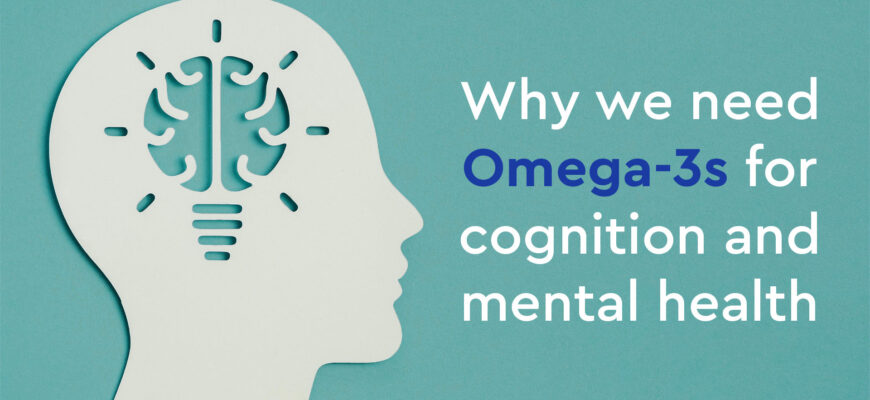In a world where life expectancy continues to climb, the conversation around “healthy aging” has shifted dramatically. It`s no longer just about living longer, but about living better – specifically, keeping our minds as sharp and vibrant as possible. For many navigating their sixties and beyond, maintaining cognitive agility becomes a paramount concern. While the sands of time are relentless, science offers a beacon of hope, increasingly highlighting the profound benefits of a particular nutritional superstar: Omega-3 fatty acids.
- The Aging Brain: A Delicate Symphony
- Omega-3: The Brain`s Best Friend in Later Life
- The Science Behind the Shine: Why Omega-3 Works
- The Structural Architect
- The Communication Facilitator
- The Anti-Inflammatory Shield
- Sourcing Your Essential Fats: A Delicious Investment
- The Long Game: Patience and Persistence
- Beyond the Plate: A Holistic Approach to Brain Health
The Aging Brain: A Delicate Symphony
As we advance in years, our brain, much like the rest of our body, undergoes subtle changes. Memory might not be as instantaneous, reaction times can slow, and the once effortless ability to multitask might require a tad more concentration. This natural process, often termed cognitive aging, is a universal experience. However, the degree to which these changes impact our daily lives can vary significantly, and emerging research suggests that certain dietary interventions can play a pivotal role in maintaining the brain`s delicate symphony.
Omega-3: The Brain`s Best Friend in Later Life
Decades of scientific inquiry have consistently pointed to the remarkable connection between Omega-3 fatty acids and brain health. These essential fats, which our bodies cannot produce on their own, must be obtained through diet. While beneficial at all ages, their importance amplifies significantly for individuals over 60, acting as a nutritional bulwark against age-related cognitive decline.
Consider the findings from various international studies: large-scale research in the United States, for instance, revealed that older adults who regularly consumed fish even once a week experienced a noticeably slower decline in cognitive performance – by approximately 10-13% – compared to their peers who rarely did. Similarly, studies from New Zealand have shown that healthy participants taking Omega-3 supplements for just six months demonstrated improvements in memory recall and faster response times in cognitive tests.
It`s not about finding a magic pill; it`s about consistently providing the brain with the fundamental building blocks it needs to thrive, even as decades accumulate.
Interestingly, the most significant benefits appear to manifest in those who started with lower baseline levels of Omega-3 or were already experiencing mild memory challenges. This underscores the idea that for many, there`s ample room for improvement simply by optimizing their intake of these vital nutrients.
The Science Behind the Shine: Why Omega-3 Works
So, what makes Omega-3s so indispensable for our aging gray matter? The answer lies in their fundamental role at the cellular level:
-
The Structural Architect
Among the Omega-3 family, Docosahexaenoic Acid (DHA) is particularly crucial. It`s a primary structural component of the brain, making up a significant portion of the cell membranes in our neurons. Think of it as the high-quality, flexible wiring in your brain`s intricate electrical system. Adequate DHA ensures these membranes remain fluid and elastic, facilitating efficient communication between neurons – the very essence of thought, memory, and learning.
-
The Communication Facilitator
Beyond structure, Omega-3s contribute to neuroplasticity – the brain`s incredible ability to form new connections and adapt throughout life. This is vital for learning new skills, remembering new information, and even recovering from injury. In essence, they help keep the brain agile and responsive, like a well-oiled machine that can reconfigure itself as needed.
-
The Anti-Inflammatory Shield
Chronic inflammation and vascular issues, like atherosclerosis, are increasingly recognized as contributors to cognitive decline. Omega-3s possess potent anti-inflammatory properties. By helping to regulate inflammatory responses and support cardiovascular health, they indirectly protect brain tissue from damage and ensure a steady, healthy blood supply – critical for delivering oxygen and nutrients to every corner of the brain.
Sourcing Your Essential Fats: A Delicious Investment
The most effective and widely recommended source for the beneficial EPA (Eicosapentaenoic Acid) and DHA forms of Omega-3 is fatty marine fish. For those concerned about accessibility or cost, fret not: nature provides abundant and affordable options. Consider incorporating fish like:
- Herring: A true powerhouse of Omega-3s, often overlooked.
- Mackerel: Rich and flavorful, excellent baked or smoked.
- Sardines: Small but mighty, perfect in salads or on toast.
- Salmon: A popular choice, readily available in various forms.
Aim for 2-3 servings of these fatty fish per week. For those who can`t consume enough fish, high-quality Omega-3 supplements can be a viable alternative, though dietary sources are always preferred for their synergistic benefits with other nutrients.
The Long Game: Patience and Persistence
It`s important to set realistic expectations. Omega-3s are not a quick fix or a magical elixir that instantly restores youthful memory. They are a fundamental dietary component, and their benefits accumulate over time. You won`t feel the effects overnight; cellular changes typically begin around 24 weeks of consistent intake. The noticeable improvements in daily cognitive function, such as better memory or enhanced concentration, are the fruits of a sustained commitment. Think of it as a long-term investment in your cognitive longevity, where consistent small efforts yield significant returns down the line.
Beyond the Plate: A Holistic Approach to Brain Health
While Omega-3s are undeniably powerful, they are most effective when part of a broader strategy for brain health. A balanced diet rich in antioxidants, vitamins, and minerals provides the complete nutritional foundation. But don`t stop there:
- Physical Activity: Regular exercise, be it brisk walking, swimming, or dancing, improves blood flow to the brain, enhancing its oxygen and nutrient supply.
- Intellectual Engagement: Keep your brain active! Learning a new language, reading challenging books, solving puzzles, or picking up a new hobby all help to forge and strengthen neural connections.
- Social Connection: Engage with others. Social interaction is a powerful mental stimulant and helps ward off isolation and depression, both of which can impact cognitive function.
- Quality Sleep: Ensure adequate, restorative sleep. It`s during sleep that the brain consolidates memories and clears out metabolic waste.
In essence, Omega-3s are a crucial ingredient, but they aren`t the entire recipe for a healthy, vibrant mind in your golden years. They are a powerful ally in your pursuit of sustained cognitive clarity, an investment that, when combined with an active lifestyle and intellectual curiosity, promises a richer, sharper experience of life`s later chapters.








